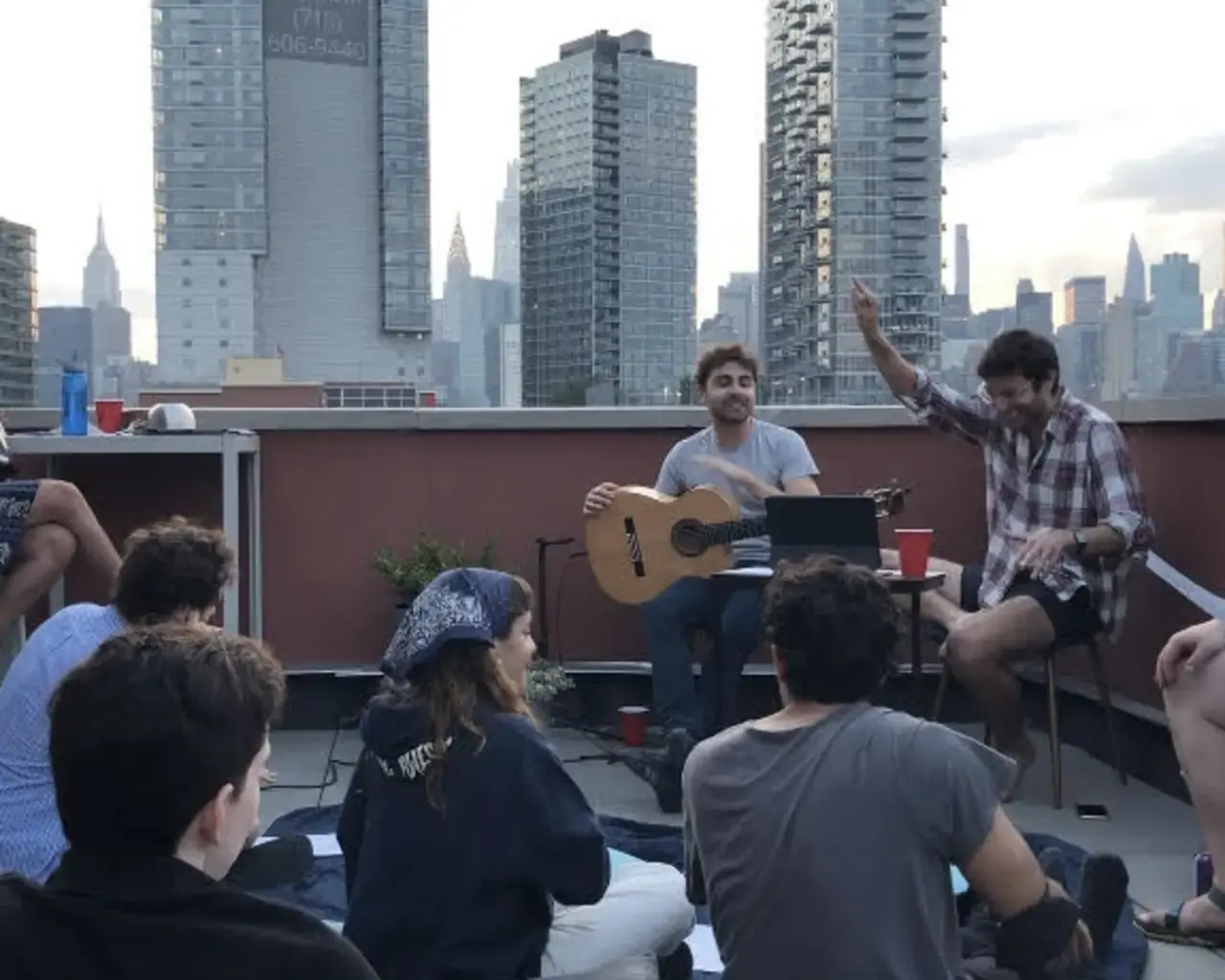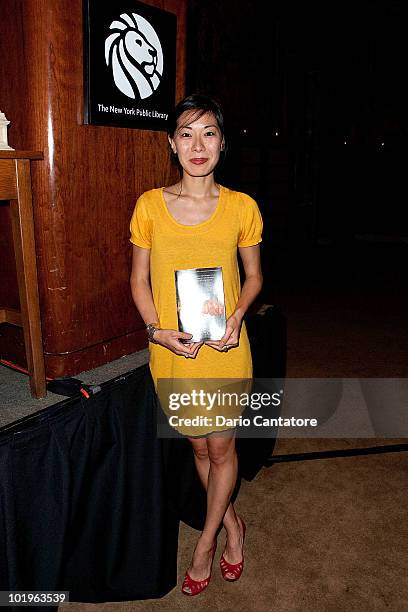“Night Side Songs” is a groundbreaking musical that delves into the profound realities of cancer and the nuances of end-of-life care, making it a significant entry in the world of theater. Developed by the talented duo Daniel and Patrick Lazour, this innovative piece has garnered attention for its raw honesty about illness and palliative care, elements that are often silenced in our culture. With insights from renowned palliative care specialist Susan Block, the production masterfully weaves the experiences of patients, caregivers, and medical professionals, illustrating the complexity of dealing with mortality. Located at Harvard’s American Repertory Theater, this unique show invites audiences to confront the often taboo topics of death, providing both emotional depth and a platform for discussion. As it unfolds the personal and communal story of its characters, “Night Side Songs” resonates with anyone touched by serious illness, inviting them to engage with their feelings in a supportive environment.
Exploring the themes of illness and mortality, “Night Side Songs” invites an introspective examination of how we approach end-of-life issues within the theatrical landscape. This production represents a fresh perspective on a subject often laden with stigma, allowing audiences to witness the intertwining lives of cancer patients and their caregivers. Through its powerful storytelling, the musical sheds light on the vital role of compassionate care in the face of terminal diseases, as advocated by pioneers in palliative medicine like Susan Block. The experience at Harvard’s American Repertory Theater encourages attendees to reflect openly on their encounters with sickness and grief, fostering a sense of community around a typically isolated topic. By presenting this sensitive subject matter through musical expression, “Night Side Songs” aims to create meaningful dialogue about the realities of health care, life, and what it means to find solace amid uncertainty.
Exploring the Role of Palliative Care in Theater
Palliative care, often misunderstood, extends beyond end-of-life care. It focuses on enhancing the quality of life for patients suffering from serious illnesses, including cancer. As illustrated in the musical ‘Night Side Songs’, this compassionate approach allows for richer narratives that capture the human experience of illness. By infusing elements of psychosocial support into storytelling, productions tackle complex themes, helping audiences embrace discussions often overshadowed by fear and stigma.
Incorporating palliative care into theater enriches the narrative landscape, presenting stories that resonate on a personal level. The Lazour brothers’ creation, inspired by real-life experiences and expert insights from professionals like Susan Block, demonstrates how theater can facilitate vital conversations about illness, suffering, and ultimately, dying. Engaging audiences in this way fosters communal understanding and empathy, encouraging them to confront and articulate their feelings surrounding life’s most difficult moments.
The Impact of ‘Night Side Songs’ on Cultural Conversations
‘Night Side Songs’ represents a groundbreaking shift in how cancer and end-of-life issues are represented in the arts. By combining heartfelt music with poignant storytelling, this musical invites audiences to grapple with their own experiences of illness and related emotional turmoil. Inspired by Susan Sontag’s profound insights on illness, the production serves not only as entertainment but also as a medium for reflection and dialogue about mortality. Its depiction of cancer care promotes awareness of the importance of palliative support in maintaining dignity and joy during challenging times.
By bringing to light the emotional and psychological dimensions inherent in the cancer journey, ‘Night Side Songs’ cultivates a deeper cultural conversation. This musical, observed through the lens of research and advisory by leaders like Susan Block, showcases how the arts can bridge the gap between personal tragedy and communal healing. Through its innovative narrative structure, the show encourages both the audience and the performers to engage in meaningful exchanges that confront the realities of serious illness.
The Unique Staging of ‘Night Side Songs’
One of the striking features of ‘Night Side Songs’ is its unique staging, which deviates from traditional auditorium setups. By performing in more intimate venues like the Cambridge Masonic Temple and Hibernian Hall, the Lazour brothers enhance the audience’s engagement with the performance. These settings facilitate a theater-in-the-round experience, drawing audience members closer to the action and to one another. Artistic choices like this are essential in promoting a sense of community and shared emotional experience, which is vital when addressing profound themes such as cancer and mortality.
Intimate settings significantly alter the audience’s perception and connection to the material. Diane Paulus, the A.R.T. Artistic Director, emphasizes that by reducing the audience size and breaking traditional boundaries, viewers can immerse themselves in the narrative of ‘Night Side Songs’. This closer interaction allows for a collective experience—where shared feelings about fear, hope, and uncertainty regarding serious illness can be mutually acknowledged and explored.
Susan Block’s Insights on the Evolution of Palliative Care
Susan Block’s pioneer work in palliative care has transformed the way we understand and approach end-of-life experiences. In the past, patients faced systemic issues that neglected their emotional and psychological needs. However, Block’s dedication to integrating compassionate care into medical practice has spurred a cultural shift. Her collaboration with the Lazour brothers for ‘Night Side Songs’ further highlights this evolution, showcasing how art and healthcare can intersect to address challenging topics such as dying.
Block reflects on how far palliative care has come since she began her career in the late 1970s—when discussions about death were often avoided. The foundation of her work lies in encouraging open conversations about death, allowing patients and families to express their fears and emotions. This principle echoes through ‘Night Side Songs’, reinforcing the importance of narrative in navigating the complexities of serious illness and demonstrating how theater can play a pivotal role in these discussions.
The Importance of Accurate Representation in ‘Night Side Songs’
Accurate representation of medical experiences is pivotal in productions like ‘Night Side Songs’. The Lazour brothers’ commitment to authenticity was evident as they turned to Susan Block for expert insights during the musical’s development. By ensuring that the narrative captured the nuances of patient, caregiver, and clinician perspectives, they created a piece that resonates deeply with audiences and offers a truthful portrayal of the cancer journey. This attention to detail not only honors the complexity of the subject matter but also serves to educate viewers on the realities of palliative care.
The authenticity infused into the production helps demystify the often-taboos surrounding illness and dying. Block’s involvement exemplifies the crucial link between expert knowledge and artistic expression. By weaving her insights into the storyline, ‘Night Side Songs’ is not just a musical; it becomes a vehicle for raising awareness about the intricacies of palliative care. The emotional depth portrayed encourages audiences to reflect critically on their own understanding of serious illness, fostering an environment where candid discussions can flourish.
Musicals as a Platform for Healing and Understanding
Musicals like ‘Night Side Songs’ serve as powerful platforms for healing, allowing audiences to process grief and uncertainty in a supportive environment. Through melody and lyrical storytelling, the narrative speaks to shared human experiences: the fears, joys, and struggles woven into the cancer journey. By inviting audiences to engage with the material, whether through singing or silent reflection, the production transcends mere performance to become an integral part of communal healing.
Such theatrical approaches empower individuals to confront their own emotions surrounding illness and death. ‘Night Side Songs’ encapsulates the essence of this journey—inviting the audience to join in an emotional exploration that resonates with those touched by serious illness, whether personally or through loved ones. Musical theater’s ability to foster connections and dialogue about profound subjects is significant, making it an invaluable tool for promoting understanding and compassion in society.
The Evolution of Conversations Around Death and Dying
Historically, conversations surrounding death and dying have been shrouded in stigma and discomfort. However, ‘Night Side Songs’ exemplifies a cultural shift towards openness regarding these topics. Facilitated by key figures in the arts and medicine, such as Susan Block and the Lazour brothers, the production encourages viewers to rethink their perceptions of death—not as an end, but as a part of life’s continuum that deserves recognition and dialogue.
By weaving humor, hope, and poignancy into its narrative, ‘Night Side Songs’ cultivates a space where audiences feel comfortable addressing their thoughts about mortality. This shift is essential in a society where illness is often met with avoidance. As more artistic representations emerge that courageously tackle themes of suffering and acceptance, we may witness a transformation in how we collectively cope with and discuss end-of-life experiences.
The Role of Community in Conversations About Serious Illness
The intersection of palliative care and theater underscores the power of community in navigating serious illness. In ‘Night Side Songs’, the very act of gathering to witness a performance fosters a shared experience that can alleviate the isolation often felt by those grappling with cancer. Susan Block emphasizes the importance of open dialogue within families, yet recognizes how isolating illness can be. Through theatrical expressions, audiences can collectively process grief, fear, and even joy, exploring emotions that often go unvoiced in society.
Moreover, the communal aspect of theater allows individuals to find solace in shared stories. ‘Night Side Songs’ invites spectators to reflect on their own experiences while connecting with others who may face similar struggles. This interconnectedness lays the groundwork for a supportive environment where discussions about serious illness can flourish. It highlights the necessity of solidarity during challenging times, transforming individual pain into a communal journey of healing.
Conclusion: Palliative Care’s Place in Theater and Society
In conclusion, the exploration of palliative care through the lens of theater, as seen in ‘Night Side Songs’, serves a crucial role in society. By blending art with the realities of serious illness, productions like this challenge societal norms around death and dying. The collaboration between experts and artists not only enriches the narrative but also ensures that vital knowledge reaches broader audiences, fostering awareness and understanding.
As the field of palliative care continues to evolve, the need for educational platforms remains vital. ‘Night Side Songs’ exemplifies how musical theater can effectively communicate complex medical themes, bridging the gap between personal experience and academic knowledge. By embracing and normalizing conversations about death, we pave the way for a more compassionate society—one that acknowledges the beauty and pain inherent in the human experience.
Frequently Asked Questions
What is ‘Night Side Songs’ and how does it relate to a musical about cancer?
‘Night Side Songs’ is a new musical that explores the emotional landscape of a cancer patient’s journey. Inspired by Susan Sontag’s views on illness, it incorporates the experiences of patients, caregivers, and medical professionals, making it a rich portrayal of end-of-life care and palliative care in theater.
Who is Susan Block and what was her role in the creation of ‘Night Side Songs’?
Susan Block is a palliative care specialist and a key advisor for ‘Night Side Songs.’ Her extensive experience in psychosocial oncology helped the Lazour brothers accurately depict the emotional and psychological aspects of cancer care within the musical.
Where is ‘Night Side Songs’ being performed and why was this venue chosen?
‘Night Side Songs’ is performed at the Cambridge Masonic Temple and Hibernian Hall in Roxbury. These intimate settings were chosen to create a closer connection between the audience and performers, enhancing the emotional impact of the themes of palliative care and the realities of illness.
What themes does ‘Night Side Songs’ explore regarding end-of-life care?
‘Night Side Songs’ addresses themes of mortality, emotional suffering, and the often-overlooked conversations surrounding cancer treatment and palliative care. It aims to challenge the stigma of discussing death and encourage open dialogue about the patient experience.
How does audience participation play a role in the experience of ‘Night Side Songs’?
Audience participation is integral to ‘Night Side Songs,’ inviting viewers to sing along. This interactive element enhances the communal experience of dealing with serious illness, fostering a shared emotional journey that connects everyone in the theater.
What makes ‘Night Side Songs’ different from traditional musicals?
‘Night Side Songs’ diverges from traditional musicals by focusing on poignant themes of serious illness and palliative care, rather than just entertainment. It provides a platform for reflecting on and discussing the complexities of end-of-life care through a musical medium.
How has ‘Night Side Songs’ been received by audiences familiar with palliative care?
Audiences familiar with palliative care have found ‘Night Side Songs’ to be a powerful and moving representation of the cancer experience. They resonate deeply with the show’s heartfelt messages about support, loss, and the importance of open communication during challenging times.
What influence does Susan Sontag’s work have on ‘Night Side Songs’?
Susan Sontag’s observations regarding illness inspire the narrative of ‘Night Side Songs.’ By addressing the ‘night side of life,’ the musical engages with the deeper emotional truths of living with cancer and the societal dialogues about illness and dying.
| Key Point | Details |
|---|---|
| Susan Block’s Involvement | Palliative care specialist Susan Block provided guidance for the development of ‘Night Side Songs,’ advising on accuracy and emotional depth. |
| Theme of the Musical | ‘Night Side Songs’ explores the experiences surrounding cancer and dying through the perspectives of patients, caregivers, and clinicians. |
| Public Reception | Susan Block expressed that her initial skepticism about a musical on death transformed into admiration after witnessing its emotional impact during the first run-through. |
| Pioneering Palliative Care | Block has been an influential figure in integrating palliative care into hospital systems, shifting perceptions around death and dying. |
| Intimate Performance Style | The musical is performed in smaller venues to foster closeness between actors and the audience, encouraging a communal experience. |
| Audience Engagement | ‘Night Side Songs’ includes interactive elements, inviting audiences to sing along, thus deepening their connection to the material. |
| Exploration of Emotion | The musical candidly addresses the emotional struggles of illness, highlighting fears, hopes, and communal silence surrounding death. |
Summary
Night Side Songs brings a fresh perspective on the often-avoided subject of death and dying. This innovative musical, developed through the expertise and insights of Susan Block, bridges the gap between art and healthcare, encouraging a dialogue about the realities of living with serious illness. By blending emotions with storytelling, Night Side Songs not only captivates audiences but also plays an essential role in promoting understanding and connection around the pivotal moments of life.



